Cyber security certifications play a vital role in today’s rapidly changing digital landscape.
As the frequency and complexity of cyber threats grow, the need for skilled professionals to protect sensitive information and networks becomes more urgent.
In this article, we will explore the value of these credentials, highlight some of the most recognized options, and discuss how they can help build a successful career.
What is cybersecurity?
Cyber security refers to the protection of systems, networks, and data from digital threats, unauthorized access, damage, or theft.
It involves using various technologies, strategies, and practices to safeguard against risks like hacking, malware, and phishing attacks. The primary objective is to maintain the confidentiality, integrity, and availability of information, reducing vulnerabilities that could impact individuals, organizations, or governments.
Cyber security certifications list
- 1. Certified Information Systems Security Professional
- Provider: (ISC)²
- Cost: Around $749
CISSP is a top-tier IT security certification for demonstrating expertise in network defense and incident response. It is suited for seasoned professionals in roles such as auditors and engineers.
To obtain CISSP, candidates must pass an exam covering eight security domains. A minimum of five years of relevant work experience is required, although this can be waived with certain degrees.
How to Apply: Register for the exam through the website. Training courses are also available for preparation.
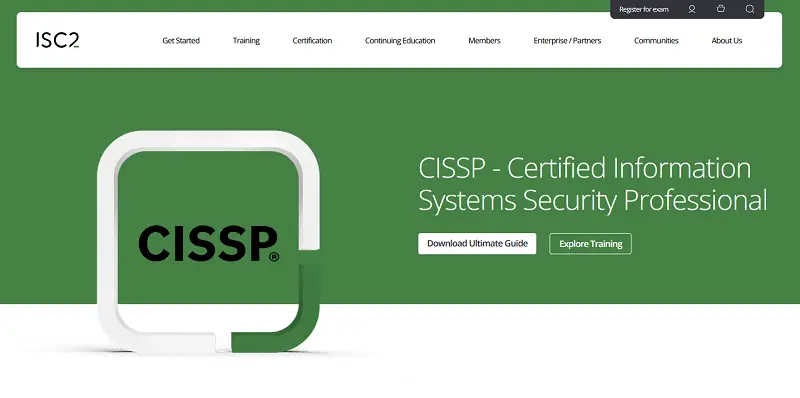
- 2. Certified Ethical Hacker
- Provider: EC-Council
- Cost: Around $1,199
This security certificate focuses on ethical hacking, penetration testing, and network vulnerability assessment. It teaches individuals to identify system weaknesses using the same tools and techniques as hackers.
To achieve the CEH, applicants need to take an exam on attack vectors and security programs. Completion of the official EC-Council training can substitute for work experience.
How to Apply: Exams can be taken via EC-Council's website.
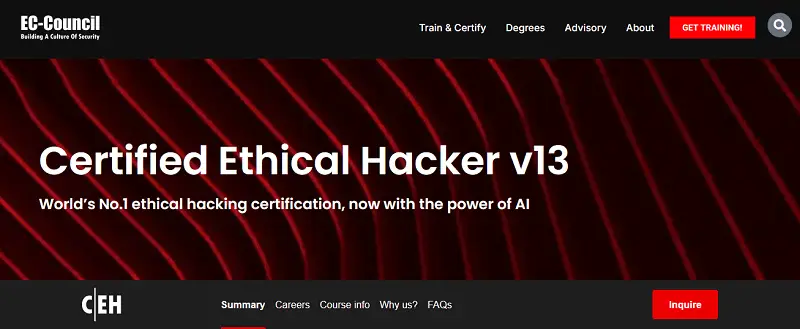
- 3. Certified Information Security Manager
- Provider: ISACA
- Cost: $575 for ISACA members; $760 for non-members
This certification in cybersecurity is is recognized worldwide, making it highly beneficial for career growth. This domain addresses the identification, assessment, and mitigation of risks to an enterprise's information assets.
To obtain the CISM designation, individuals have to complete an evaluation covering four areas: Risk Management, Governance, Incident Management and Program Development.
How to Apply: Registration for the exam is available on ISACA's website.
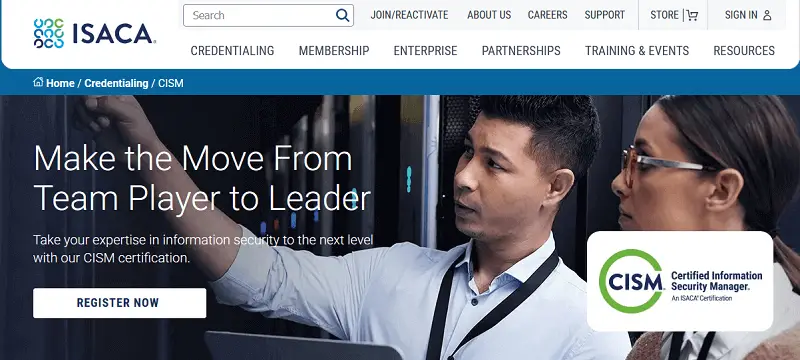
- 4. CompTIA Security+
- Provider: CompTIA
- Cost: Around $370
Security+ is one of the cyber security certifications for beginners that covers fundamental concepts such as network defense, cryptography, and risk management. It spans a broad range of tools and technologies, making it applicable across multiple industries and platforms.
Unlike many other trainings, CompTIA does not have strict prerequisites. However, it is recommended to have basic knowledge of computer networks, operating systems, and IT fundamentals.
How to Apply: The exam can be taken at Pearson VUE testing centers or remotely.

- 5. Certified Cloud Security Professional
- Provider: (ISC)²
- Cost: Around $599
CCSP opens doors to higher-level positions. It is also recognized as a valuable credential for professionals pursuing leadership roles. This certificate for cyber security also discusses the maintenance of business continuity and disaster recovery in cloud environments.
To become CCSP-certified, candidates must have at least five years of experience in IT, with background in one of the six CCSP domains.
How to Apply: The exam is offered globally at Pearson VUE testing centers or through online proctoring.
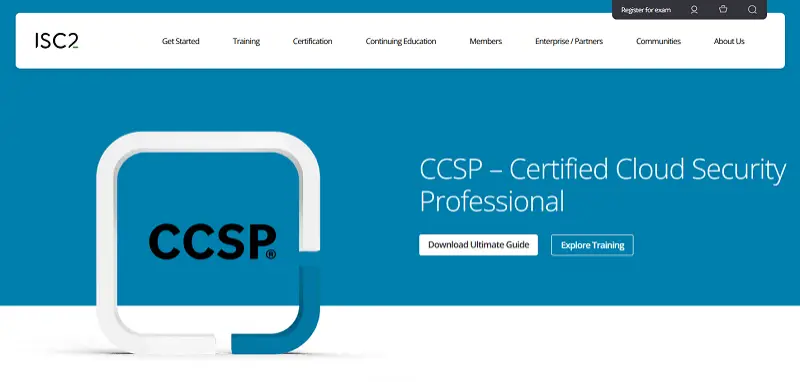
- 6. Certified Information Systems Auditor
- Provider: ISACA
- Cost: $575 for ISACA members; $760 for non-members
This cyber security training certification centers on the principles and techniques used for auditing a company’s information systems. It covers how to conduct audits, plan the process, and ensure the effectiveness of internal controls.
Some of the requirements might be eliminated with certain educational qualifications, such as a degree in information systems.
How to Apply: The exam is available during specific windows each year through the ISACA platform.
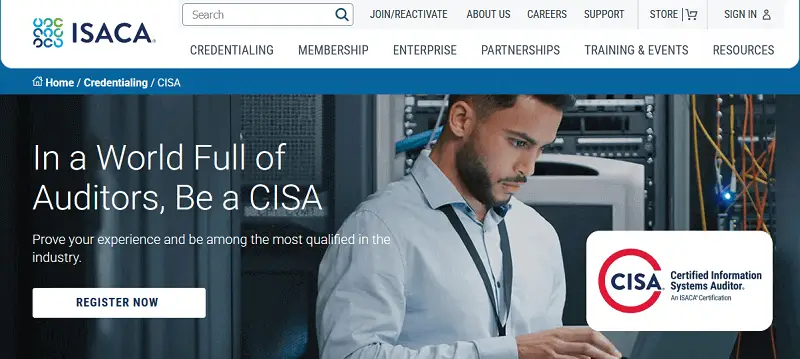
- 7. Cisco Certified CyberOps Associate
- Provider: Cisco
- Cost: Around $300
This cybersecurity certification is ideal for individuals who work with network monitoring, issue response, and threat intelligence to protect organizations. The license focuses on the skills necessary to handle various operations, including monitoring traffic, analyzing events, and responding to incidents.
There are no strict prerequisites for taking the test, but having a basic understanding of networking concepts and IP addressing is recommended.
How to Apply: After registering and completing your preparation, you can schedule the exam at a Pearson VUE testing center or take it remotely with online proctoring.
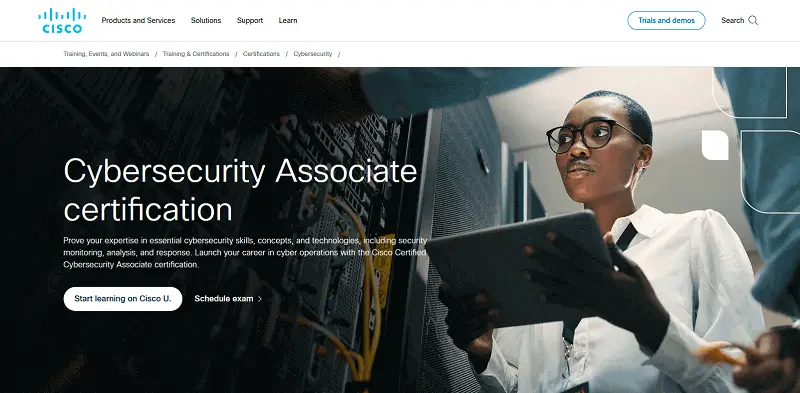
- 8. GIAC Security Essentials
- Provider: GIAC
- Cost: Around $2,499 for the exam and training bundle
GSEC is an ideal IT security certification that covers mechanisms for controlling access to information systems, including user authentication, authorization, identity management, and the implementation of least-privilege principles to minimize risks.
To earn GSEC, individuals must pass an exam that assesses topics such as cryptography, security operations, and network defense.
How to Apply: The exam is available online with the option of remote proctoring, allowing applicants to take the exam from anywhere.
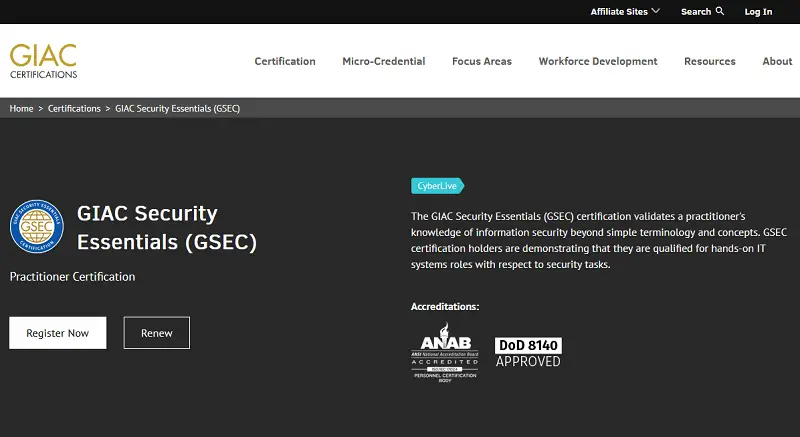
How to put certifications for cyber security on resume?
1. Create a Dedicated Section
Having a separate resume part ensures that employers can easily spot your qualifications. This block should be placed after your Summary or Skills to ensure visibility.
2. Use Reverse Chronological Order
Place your most recent credential first and proceed backward. This allows the recruiter to quickly see your latest trainings and assures them that you're up-to-date with your expertise.
3. Write the Full Name of Each Cybersecurity Certification
To avoid confusion, always utilize the official name of the license, even if abbreviations are commonly understood in the industry. This adds clarity and professionalism.
4. Include the Certifying Organization
Make sure to incorporate the certifying body. This helps the recruiter understand the credibility of the document.
5. Provide the Date
For each security certificate, mention when it was earned or when it will expire. This gives employers insight into the recency of your credentials and whether you're keeping your knowledge current.
If you are working towards a diploma, you can note it as "In Progress".
6. Formatting
- Bullet points can help organize the section and make it easier to read.
- Use bold for titles to make them stand out.
- Keep a consistent layout for dates and the organizations.
Create your professional Resume in 10 minutes for FREE
Build My Resume
Resume examples with cybersecurity certifications
Susan Harris
Ashland, KY 41114
Email: susan.harris@gmail.com | Phone: (555) 123-4567Summary:
Cybersecurity professional with experience specializing in network security, risk management, and incident response. Holder of several industry-recognized certifications, including CISSP and CompTIA Security+. Proven track record in enhancing security infrastructures and ensuring compliance with regulatory frameworks.
Certifications:
- Certified Information Security Manager – ISACA – Expires: December 2025
- Certified Information Systems Security Professional – (ISC)² – March 2024
- CompTIA Security+ – November 2022
Skills:
- Network Security
- Vulnerability Assessment
- Risk Management & Mitigation
- Incident Response
- Cloud Security Architecture
- Penetration Testing
- Firewall and VPN Configuration
- Security Compliance (HIPAA, GDPR, PCI-DSS)
- SIEM Systems (Splunk, LogRhythm)
Professional Experience:
Senior Cybersecurity Analyst
General Electric (GE) — Cincinnati, OH
May 2021 – Present
- Lead the company’s incident response team, managing cyberattack investigations and mitigating potential threats in real-time.
- Develop and implement network security protocols to protect critical infrastructure and sensitive data.
- Conduct regular vulnerability assessments and penetration testing to identify weaknesses and strengthen security posture.
- Trained junior cybersecurity staff on best practices and security awareness.
Cybersecurity Engineer
Lexmark International, Inc. — Lexington, KY
June 2018 – April 2021
- Designed and deployed security solutions to protect the company’s data and IT infrastructure from cyber threats.
- Collaborated in the development and implementation of policies related to data privacy and access control.
- Conducted risk assessments and developed strategies to mitigate potential vulnerabilities.
IT Security Analyst
Ashland Inc.
March 2016 – May 2018
- Monitored network traffic for suspicious activity and implemented security protocols to prevent unauthorized access.
- Assisted in the development of incident response plans and disaster recovery procedures to ensure business continuity.
- Conducted internal audits and vulnerability scans to assess risks and ensure compliance with data protection laws.
Education:
Bachelor of Science in Information Technology
University of Kentucky — Lexington, KY
Graduated: May 2015
*Professional Development:
- Certified Ethical Hacker (CEH) Training – EC-Council – Ongoing
- Splunk Fundamentals – Completed: 2023
- NIST Cybersecurity Framework Training – NIST – Completed: 2022
Additional Information:
- Active member of the Information Systems Security Association
- Volunteer for local Cybersecurity Awareness Month initiatives, educating community members on safe internet practices.
Conclusion
In conclusion, cybersecurity certifications play a significant role in validating the expertise and skills of professionals in an ever-evolving digital landscape.
By investing in the right security certificate, specialists not only enhance their knowledge but also position themselves as trusted assets to potential employers. As technology continues to advance, staying up-to-date is essential for anyone committed to a successful career.
Create your professional Resume in 10 minutes for FREE
Build My Resume







